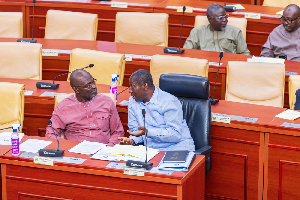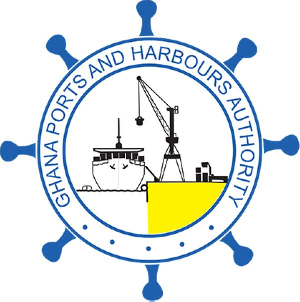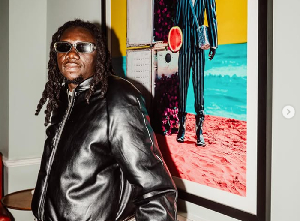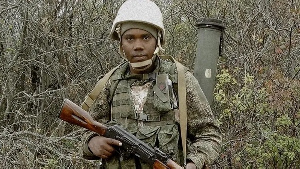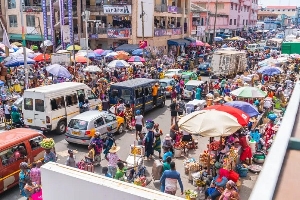Rulers And The Ruled: Conmen, Crooks, Charlatans, Usurpers And Impostors In Post-Colonial Ghana.
PART 1
This is a nagging and an all-embracive topic which needed to be properly addressed, as I believe it spells out what ails Ghana since her flag independence. Unravelling the complex phenomena and tendency of Ghanaians to embrace and tolerate corruption and lawless behaviour to anomic proportions will be a major contribution to understanding the Ghanaian psyche which underpins the problems of bribery and corruption and inability to conform to laws and regulations in all their ramifications. Even though the title indicates treatment from the post-independence period, to understand the issues very well requires that we delve into our pre-colonial and colonial past for clues as to the origins of the post-colonial era issues at stake. This is because those of us with the benefit of hindsight into our historical past see a continuum, some of which make the presence pale into insignificance. The mythology of some African writers who paint pristine images of an African past, in which all was fine and dandy, regulated by time tested customs and traditions collapses like a pack of cards. I have the opportunity to accuse one of such writers, Prof George Ayittey, of indulging in “false empiricism”: skewed or wrong presentation of some empirical events to fit certain claims, empirical or subjective. So what are the gory, bloodstained details without the whitewash like the slave castles which still dominate our shores?
The treatment I intended is by no means exhaustive, as it is exploratory, the main objective being to broach some new dimensions not looked at before and, hopefully, those with more resources shall deal with them indepth. Of course, some studies by mainly white scholars already exist touching on the issues raised but in this write-up, despite the temptation, I shall keep mention of them to the minimum, as this is not intended for a peer reviewed journal but the popular media.
Illustrations or brief case studies shall be made with examples of known characters guilty of the negative traits, nation wrecking and lawless behaviour under discussion.
To make myself clear to readers, I’d like to offer, within context. some brief explanations of and forays into some of the key terms referring to the protagonists or actors.
CONMEN: The word “conmen,” derived from “confidence men,” is used to refer to confidence tricksters, charlatans or quacks who profess to be what they are not in order to win our trust or confidence in order to offer something gainful or beneficial to us. In the process, we are invariably duped, swindled, scammed and short-changed, often losing money to the conmen or swindlers. Hmm! I can hear someone mumbling that we can put almost all our politicians under this category! But let us include those charlatans selling to the public all kinds of cures for our ailments at the lorry stations; the horde of self-proclaimed prophets and prophetesses, pastors, bishops, alufas, and seers that offer salvation to Ghanaians not only in the after-life but from all kinds of imaginable problems from financial woes, imagined generational curses, love pangs to menstrual pains but are often reported in the press for all kinds of criminal conduct. They are the new snake oil sellers and magicians from our colonial and pre-colonial past. The psyche and cosmology of the mass of Ghanaians - even the most educated - steeped in their peasant, artisanal fishing, small time craftsman and illiterate origins, dominated by the Weberian primitive, substantive rationality, makes them receptive to their wiles. And it shall be so for a while still, as the world of Ghanaians is yet to experience the Enlightenment based on rational and scientific thought.
Of course, the mid-1970s was the height of the conmen’s reign, when the phenomenon known as “kalabule” reached its apogee. The whole population was touched one way or the other, for better or for worse, depending on who has the greater opportunity to swindle or scam others most! With the resurgence of scamming on an international scale under the known names of 419 or Sakawa, the members of the civilian population being the main culprits, one cannot only continue to point fingers at the corrupt politicians and public officials in all the three arms of government who supervise the whole citadel of corruption and official protection racketeering that goes under the name of government in Ghana. For, indeed, for the minimum protection and services that the State provides, those in control of the state machinery arrogate to themselves the right to plunder public resources and wantonly extort money from the population for their own gain on a scale unimaginable in the civilised world of today. One would have to go back to the C19th to see something similar in the West but was, of course, the order of day with our plundering and slave raiding ancestors.
USURPERS: “Usurpers” refer to those who illegally seize the right to govern or rule, as in a coup d’état; or claimed a chieftaincy stool or skin whilst one is not qualified to do so. All the coup makers in Ghana since 1966 fall under this category. Likewise, are a number of claimants to stools they are not entitled to, thus giving raise to intractable disputes in the courts and conflicts in all the regions of Ghana. The question arises about the origins of these usurpers; by that, I mean their social or family origins which predispose them to such illegalities. Not much is written about the family or social origins of Ghana’s military and police usurpers. However, the available evidence shows that the Ghana Army and Police originally comprised mainly people of slave and lower social status origins. This, for a long time after independence made enrolment into those two institutions a thing of low esteem to those who see themselves as of higher social status. In the case of usurpers to chieftaincy stools, who are they indeed? Since succession is hereditary, who in his right mind who is not a bona fide descendant from the rightful bloodline would dare to push himself forward into such a position? Could the dispute be arising from the descendants of those born of slave “wives” and servants of royal households who are not recognised as heirs? Or, those who have suffered “social death” and really do not know their true origins, as the assimilation process of such “Outsiders” entailed suppression of their origins?
IMPOSTOR: “Impostor” refer to a charlatan or conman who assumed a FALSE IDENTITY, thus making the person an impersonator, in order to deceive and/or swindle us for a purpose. Often, the persons may change their names to make the deceit successful but in many cases, they simply assume false credentials they do not have. John Ackah Blay-Miezah readily comes to mind as one supremo in this category but he was not alone, as we have recent examples making waves such as the Egyptian Onsy Nkrumah claiming to be the son of Dr Kwame Nkrumah and Prosper Tao Tsikata (to be distinguished from Prosper Yao Tsikata, the beleaguered victim of his name theft). Many false claimants to chieftaincy stools, past and present, fall under this category too. Mr Lumorvi Atitsogbi, aka Nyonyo Agboada (many other names), and Mr Patrick Agboba, pretenders to the Anlo Awoamefia throne, and Dr Joe Blankson, claimant to the Ga Mantse throne, are recent examples. These grown ups who should have known better have caused so much discord and grief in their communities. What motivates them? We just have to take a look at our colonial past, with the colonialists creating warrant chiefs by heart, and pre-colonial past when even people from different ethnic groups freely imposed themselves upon others through wars and conquest to appreciate the phenomena of usurpers and impostors!
Today, conmen and impostors are criminals, mere unconscionable crooks, rogues and rascals that prey upon the ignorance, goodwill and trust of the citizenry. They deserve to be exposed, arrested, prosecuted and penalised but, unfortunately, they are often idolised in the Ghanaian society when successful in their pursuits of unlawful gains. In many cases, they are accorded official recognition and rub shoulders with officialdom. One may say birds of the same feather flock together, and so it is not unusual to see the government leaders behaving as they do, harbouring and promoting the fortunes of one of their own, despite irrevocable and clear evidence against them. If the evidence does not readily exist, it can be readily found in most cases by proper investigation, So, Onsy Nkrumah could be charged with impersonation and samples taken from him for a DNA test, but none in the corrupt government circles will do no such thing in order to protect public sanctity; not to mention the image of our revered or much reviled Founding Father, depending on which side of the turf you are!
Perhaps, the Ghanaian psyche, primed up by the spider (“ananse” or “ayiyi”) folktales, in which the trickster spider always prevailed, has indeed conditioned Ghanaians to accept and hail such criminals as achievers, as suggested by a Japanese anthropologist looking at the corruption scene in Africa - amidst wild outcry from African counterparts. The absence of a whistleblower legislation, which the ethically challenged conmen in Parliaments have refused to pass, is not enough to explain the protection and accolade these criminals enjoy at the moment.
RULERS: “Rulers” here refers to the heirs to and the operators of the colonial state of Ghana comprising its coercive apparatuses, the executive, the judiciary and legislative arms, whether in civilian clothes or military garbs, and their counterparts, the traditional chiefs who partnered the colonialists under the system of Indirect Rule and still preside over the traditional authorities the length and breadth of Ghana. They are the supervisors and hirelings of the corruption and lawlessness in post-independent Ghana. What are their class or social origins that predispose their psyche to this particularly vicious form of primitive accumulation or just plain thievery, callousness, normlessness and lack of empathy for the weak? What acculturation processes did they undergo during the colonial era, as practically all of them were born during that era? Yet again, the available evidence shows that Ghana’s so-called elite are mainly drawn from people of slave origins and some scions of the royal houses. What is, in book-long terminology, the complex articulation of interests at work? Chief Obafemi Awolowo, in the first Kwame Nkrumah Memorial Lectures at the University of Cape Coast in 1977, spoke of the warped mentality that the slave trade left as a legacy in Africa. Franz Fanon wrote of the Psychology of the Oppressed to highlight the ravages of colonialism to the minds of Africans. Not much has been said then. What are the ramifications of all this? I am aware of Dr Irene Odotei collecting empirical data in the 1990s touching on the subject but have not seen outcomes of her analyses.
THE RULED: The “ruled”, of course, refers to the rest of us civilians, from the rich, wheeling dealing business tycoons who bribe, wine and dine with the rulers; the drivers who tip off the Police constables on a daily basis to the rural rustics who are supposedly the much oppressed and bamboozled subjects. However, the ruled, by no means, are not averse to, or not adept at adopting the same means the conmen, impostors, the crooked businesspeople and rulers employ to perpetuate their swindle on the whole population. They are therefore not entirely passive victims of the protection racketeers manning the state apparatus, as they are masters of the game themselves, employing all kinds of survival and coping mechanisms on a daily basis to survive. This irony, of course, has been commented upon by scholars. Just take the number of young, rootless and wayward people getting involved in “sakawa” - all kinds of 419 scams - to defraud people both in Ghana and abroad, and the faked “political refugees” of yesteryears with tall tales of persecution, to appreciate what I mean. The prisons are filled full with convicts from the ruled class. The ruled, in short, are just as compromised in this saga as the rest of them, as in the era of civilian rule, the ruled indeed supply the rulers. Psychologists tell us that abused persons often grow up to become abusers, and the ruled are definitely part of the induced warped mentality of the past. Together with the rulers, they all play cops and robbers in the drama that underpins the canker of bribery and corruption, plain thievery, rogue behaviour and lawlessness that unfold daily in Ghana. Any talk of a principled and conscionable civil society in Ghana working for good governance is therefore largely bogus, as we just have compromised partisan groupings that support their side of the hood. The vocal exceptions are few and are seen as oddities or odd balls swimming against the tide.
With this prelude to the subject, I’d like to dwell in Part 2 on the advent of the immediate post-colonial era to 1972, which marked the return of military rule to Ghana after the overthrow of the Progress Party government of Dr Kofi Abrefa Busia by Col. Ignatius Acheampong’s NRC.
Opinions of Monday, 19 November 2012
Columnist: Kwawukume, Andy C. Y.


